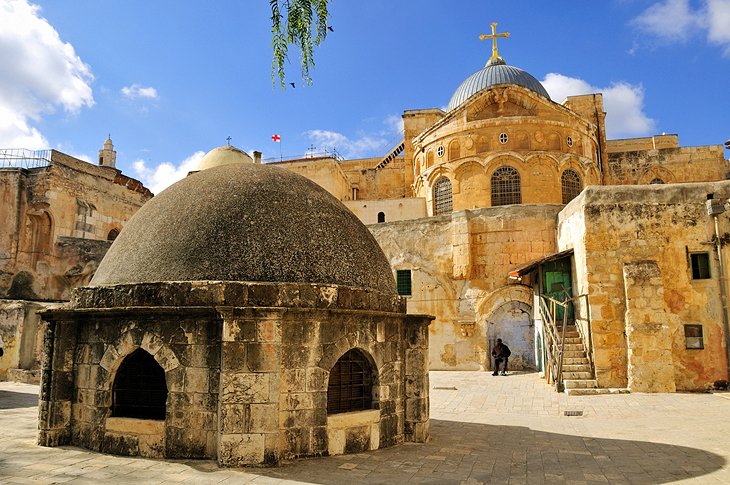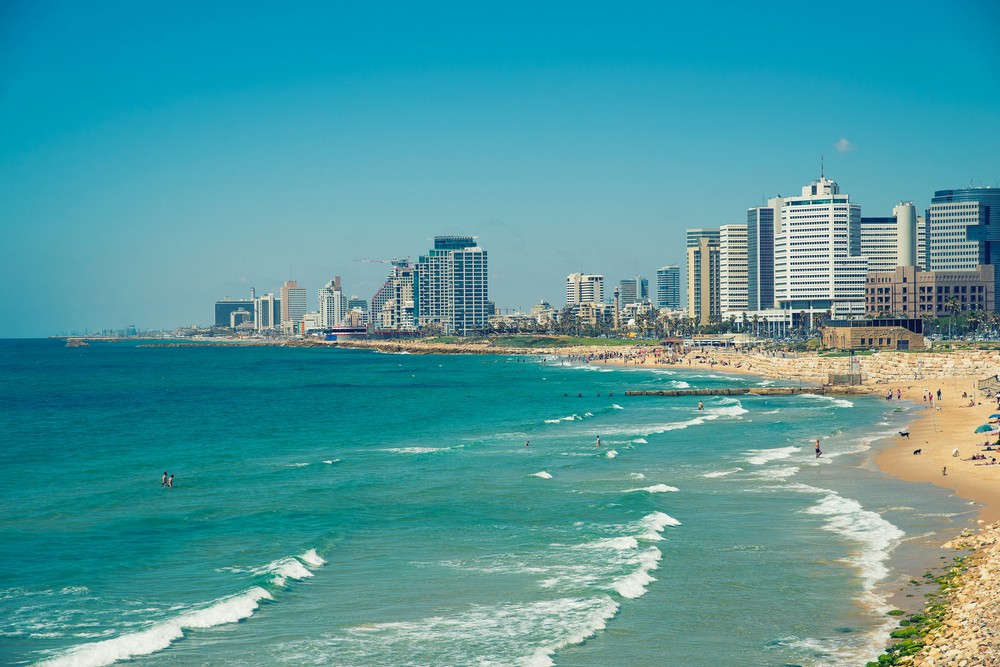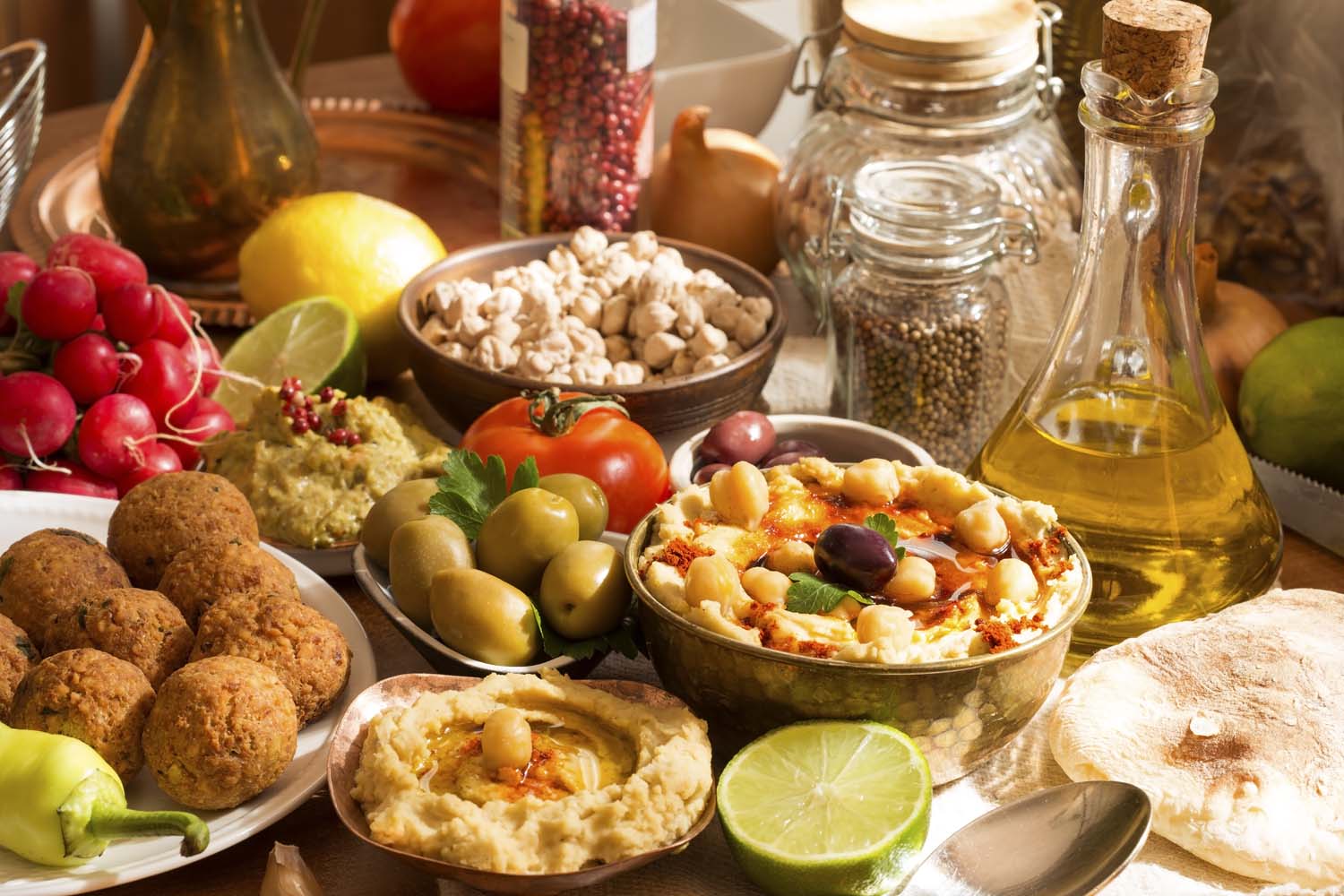Israel is one of the only places in the world that stip up passion. It has a breathtaking beauty of hills and valleys, along with the stillness of the Dead Sea, the multi-coloured canyon of Maktesh Ramon, and the ancient walls and pathways of Nazareth and Jerusalem. The Western Wall is a reflection of how the religious devotion of the Muslims, Christians and Jews who live here runs through every facet of life.
Visitors will rarely leave this country without encountering the complex politics of it. But, there are also other many ways to relax and enjoy it like the bars and beaches of Tel-Aviv and Haifa as well as the wineries of Galilee. Some visitors are keen to make real-world cultural connections to the art and music that features so prominently in their lives. For those of stronger faith, this country allows them to bring their daily bible readings to life. Israel never stops to surprise its visitors, leaving an imprint that stays long after the return flight home.
Did you know that Israel is a young country with only 68 years old and is the 3rd in the word of consumption of sweets and vegetables? Also, did you know the USB is an Israel invention and that anyone can stay afloat in the Dead Sea because of the high concentration of salt? So, even if you are not a good swimmer, Israel is a must-see country for everyone!
Click on the image below and watch the video to see more fun facts about Israel:
Wines in Israel have won international awards. The grapes are grown since biblical times in different microclimates, producing very rich finished wines.

The best areas to do taste these wines are:
Golan Heights High altitudes: a cool climate, well-drained volcanic soils and top-rate savoir-faire.
Ramat Dalton High in the Upper Galilee: ‘Israel’s Tuscany’ produces some of the country’s top vintages.
Negev Highlands: with hot daytime temperatures, cool nights, the latest drip-irrigation technology – and inspiration from the ancient Nabataeans.
Zichron Ya’akov: a winemaking centre since the late 1800s, this town has a typically Mediterranean climate.
All over the country, ancient synagogues have been built for years. They are adorned with ornate stone carvings and gorgeous mosaics.
Beit Alpha Synagogue: famed for its extraordinary mosaics depicting a zodiac circle, a menorah, a shofar and a Torah ark.
Hamat Tveriya National Park Mosaics: located in Tiberias feature two seven-branched menorahs and a zodiac.
Korazim National Park: decorated with exceptionally fine basalt carvings depicting floral and geometric designs.
Tzipori National Park: Byzantine-era synagogue with an exceptional mosaic floor.
Bar’am National Park: solidly built of finely hewn limestone during the late Talmudic period.
Ancient Katzrin Park: a Talmud-era synagogue made of dark local basalt.
Gamla Nature Reserve: one of the world’s oldest synagogues, believed to date from the 1st century BCE.

The historical Jesus was born in Bethlehem, grew up in Nazareth, preached in Galilee and was crucified in Jerusalem. Many sites associated with his life and ministry have become places of Christian pilgrimage.
Church of the Holy Sepulchre: the traditional site of Jesus’s crucifixion, death and resurrection is Christendom’s holiest site.
Church of the Nativity: believed to be the site of Jesus’s birth since at least the 4th century.
Basilica of the Annunciation: where many Christians believe the Annunciation took place.
Capernaum Jesus’s: home base during most of his Galilean ministry.
Qasr Al Yahud: reputed site of Jesus’s baptism by John.
Mt Tabor: traditional hilltop site of Jesus’s Transfiguration.
You can dance in Israel on the beach or inside a disco, nurse a local microbrew in a dark pub and watch live music in an old warehouse, the options are unlimited.
Tel Aviv Seafront cafes: fine dining, music venues and all-night boogying.
Cameri Theatre: stages contemporary Israeli plays in Tel Aviv, with English subtitles on some nights.
Israel Philharmonic: world-renowned for its performances of the Western classical repertoire.
Eilat: plenty of bars, pubs and clubs, some open till dawn.
Haifa’s: trendy bars and clubs attract a young, studenty crowd.
The Sea of Galilee offers old-fashioned family fun. Hedonists preen and bronze along the Mediterranean, while at the Dead Sea they float and apply mud packs. At the Red Sea the most colourful creatures are under the water.

Metzitzim Beach: is a family-friendly half-bay just south of the Tel Aviv Port dining and nightlife area.
Coral Beach Nature Reserve: is Eilat’s best beach is a utopia for snorkellers.
Ein Bokek Beach Broad: is clean and sandy – the Dead Sea’s finest free beach.
Sea of Galilee: some are free, others come with fees and amenities, all are refreshing on a scorching summer’s day.
Akhziv National Park: about as far north as you can go along Israel’s Mediterranean coast.
Watch this video to see all the adventures you can experience in Israel. Just click the image below:
Israel hills and valleys have marked routes from easy strolls for the whole family to multi-day treks requiring topographical maps. Spring is the ideal season after the winter rains for an amazing trek around the hills.
Israel National Trail: Israel’s longest footpath links the Lebanese border with the Red Sea.
Ein Gedi: two spring-fed canyon oases are home to a profusion of plant and animal life.
Makhtesh Ramon Nature Reserve: hike through this vast desert crater, famous for its multicoloured sandstone.
Banias Nature Reserve: cool, bubbling spring water tumbles over waterfalls and nourishes Edenic vegetation.
Yehudiya Nature Reserve: canyons, waterfalls and pools on the western edge of the Golan.
Jesus Trail: walk from Nazareth to the Sea of Galilee.
En Avdat National Park: a hidden spring-fed oasis deep in the Negev Desert.
It incorporates many foods traditionally eaten in Levantine, Middle Eastern and Mediterranean cuisines, and foods such as falafel, hummus, msabbha, shakshouka, couscous, and za’atar are now widely popular in Israel.

The drinking culture in Israel begins and ends with coffee, but the country offers numerous varieties so no matter your tastes you should find something that reminds you of home. Espresso, Turkish coffee, lattes, cappuccino, iced coffee, and a traditional cup of coffee are all available as coffee shops are everywhere. Tea is also common, especially in the coffee houses as it’s available in numerous styles as well. If you want something more original to Israel try sahlab, a pudding-like drink made from cornstarch, cinnamon, and pistachios. Or if you want something from home, soft drinks, juices, milk, and most international favourites are easily accessible.
The alcoholic drinks available in Israel include anything one can imagine, however in more conservative locations, particularly in Jerusalem and in Muslim areas, the options may be limited. Most of the Jews do drink alcohol, or at least have no objection to drinking alcohol, and it can be purchased and consumed. For a local brew try ‘Dancing Camel’ or ‘Negev’. Due to Kosher laws, the local beer selection is limited as is the local wines, however, this is rapidly changing. The wine industry in Israel has quickly expanded and the quality has also vastly improved.
High Season (Jul & Aug)
Warm in Jerusalem, muggy in Tel Aviv, infernal in Eilat, Tiberias and the Dead Sea. Hotel prices spike and rooms are scarce. Jewish holidays of Passover, Rosh HaShanah and Sukkot are also high seasons.
Shoulder (Sep–Nov & Mar-Jun)
Sometimes rainy but more often warm and sunny. Spring wildflowers make March and April ideal for hiking. Local tourist demand spikes during the week-long Jewish holidays of Passover and Sukkot.
Low Season (Dec–Feb)
Chilly or downright cold in the north, especially at higher elevations. A popular time to head to the warmth of Eilat and the Dead Sea.
The Australian Government provides up to date information on the safety of travelling to various countries, and all travellers should take note of this advice. Liberty Tours recommends that all travellers take out appropriate Travel Insurance to cover the entire duration of their absence from home. Liberty Tours can assist with obtaining Travel Insurance.
Follow this link for current official assessment:
https://www.smartraveller.gov.au/destinations/middle-east/israel-and-palestinian-territories
Advice on health risks and vaccination recommendations can also be found using the same link.
FAQ
Citizens of many countries are exempt from obtaining a visa in advance. Every tourist must check, before leaving for a visit to Israel, whether a visa is required from the local Israeli representative office.
The Ministry of Foreign Affairs website contains a list indicating the country and the requirement for its approval:
http://mfa.gov.il/MFA/ConsularServices/Documents/VisaRequirements-Tourists.pdf
Every visitor must present a passport that can be scanned by an international computer system. If a visitor arrives with a pass-through card only, he/she must provide a visa from the Israeli embassy in his/her country of residence. More information is available on the Ministry of Foreign Affairs website: WWW.MFA.GOV.IL
Visitors with a tourist visa may stay in Israel for up to three months from the date of arrival, and in accordance with the conditions of the visa granted to them at the border crossing. Visitors wishing to work in Israel must apply for the appropriate approvals from the Administration of Border Crossings, Population and Immigration.
The monetary unit in Israel is the Israeli Sheqel (ILS). AUD 1= ILS 2.20
There are ATMs in Israel and Jerusalem that accept international cards. There are fewer ATMs in the West Bank and Gaza. Money transfer through Western Union to a local Israeli post office normally takes 3-4 hours during a normal working day. Post offices and banks in Israel and Jerusalem close from midday on Friday to Sunday morning. In the West Bank and Gaza, they are usually just closed on Fridays.
Israel is a modern, developed country with levels of health and hygiene equal to those of Western countries.
Visitors entering Israel are not required to undergo vaccinations prior to their arrival.
You can drink tap water. But, you will also find mineral water everywhere.
It is important to make sure you drink a lot, especially when out walking and on hot days.
Yes. You can travel between Israel, Jordan and Egypt. Also, you should check with the relevant embassies if you need a visa to these countries.
No place in the world is 100% safe but Israel is a relatively safe tourism destination.
This means that visiting the country and travelling around within it is completely safe, despite the occasional incident or flare up that makes the news back home.
As a result, tourism to Israel has been growing steadily and last year alone approximately 2 million tourists visited the country.
Air France
Air Canada
American Airlines
British Airways
EasyJet
EL AL Israel Airlines
K.L.M Royal Dutch Airlines
Rossiya Airlines
Places offering kosher food usually display a kashrut certificate granted to them by the local rabbinate. Most hotels serve kosher food, as well as some restaurants. But there is no binding law. So if kashrut is important to you, you must check it out at each separate place where you dine.
Tipping in hotels is expected. You should tip the bellboy a total of ILS 20 (AUD 9.18) for all luggage. You should also tip the maid ILS 10 (AUD 4.59) – ILS 20 (AUD 9.18) per night. In restaurants, you are expected to tip between 10-15%. 12% is the average tip when eating out at restaurants. Bars are similar to restaurants where you are expected to tip 10-15% of the total bill.
Time Zone:
Israel is 2 hours ahead of Greenwich Meant Time. Canberra, Australia is 7 hours ahead of Israel.
Electricity:
230 volts / 50 Hz – Sockets are of European two-pronged round pin variety.
Language:
Hebrew (official), Arabic (official), Russian, English.
Religion:
74.8% Jewish, 17.6% Muslim, 2% Christian, 1.6% Druze
Israel Tourism Official Site
We are passionate about giving our customers the holiday of their dreams
© 2019 All rights reserved